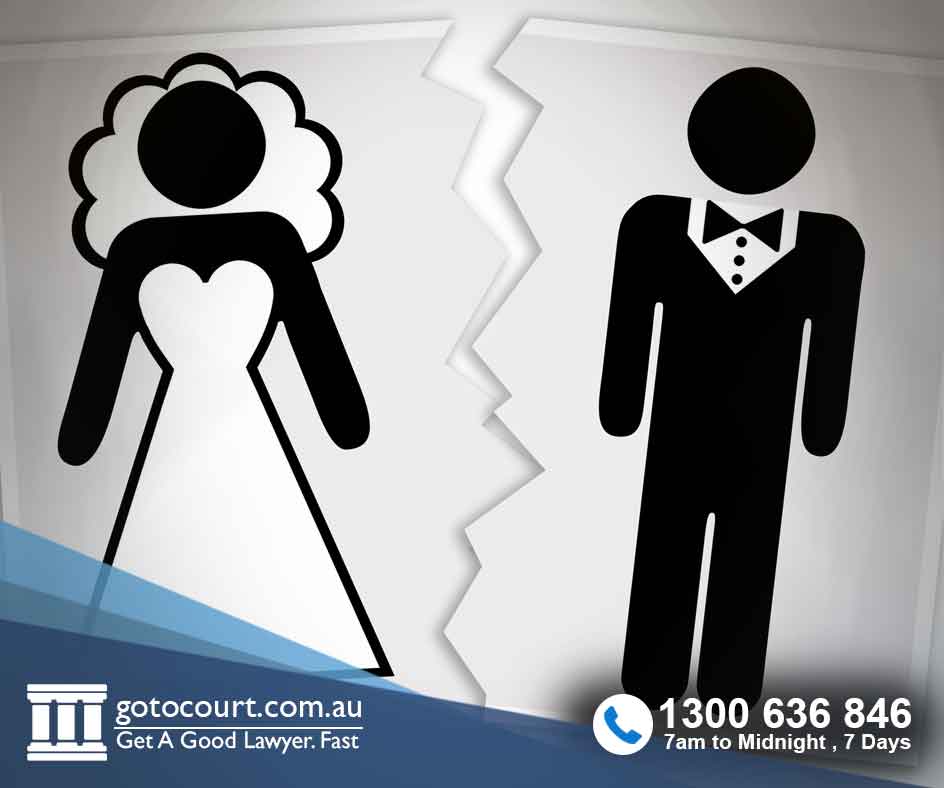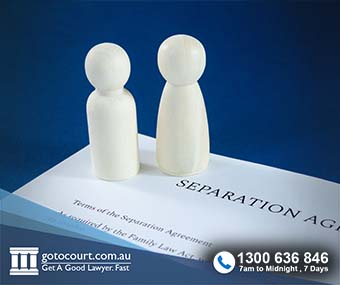What is Our Date of Separation?
What is Our Date of Separation?
When spoken about in a family law context, the word ‘separation’ describes the termination of a marriage or de facto partnership. A couple is said to have separated once they stop living together as a couple. Unlike marriage or divorce, there is no legal process for separation. The absence of a formal process means that there are no application forms, certificates or signatures involved. This usually means that there is no recorded date of separation, and this sometimes gives rise to a dispute as to when separation took place. While the date of separation is not always clearly identifiable, it is extremely significant. As the very first step in most family law proceedings, separation (and the date on which it occurred) plays a crucial role in determining the course of events to follow.
Why does it matter?
The two main situations where the date of separation matters are:
Divorce
In order for a divorce to be granted in Australia, two main criteria must be satisfied:
- That there is no reasonable likelihood of reconciliation; and
- That the parties to the marriage have been separated for at least 12 months.
Property settlement
For couples who have separated and want to settle their property, time limits apply. For couples who have been married, the time limit is 12 months from the date the divorce order becomes effective. For de facto couples, it is two years from the date of separation.
Separation under one roof
Disagreements as to date of separation sometimes arise where the parties to a relationship continue living together after the relationship has broken down. This is a common situation, as financial and other circumstances can make it difficult for a party to leave the home. It is important to note that it is not a requirement that parties to a marriage or de facto relationship no longer reside together for separation to take effect. Rather, a couple is deemed to have separated when they stop living together as a couple. This means that two people can be separated and remain living in the same place. This is known as ‘separation under one roof’.
When are we separated?
Inconsistent separation dates can be troublesome; however, the accurate date can usually be determined by taking several factors into consideration. As mentioned earlier, the question to ask is whether two people are living together as a couple. To answer this, the following factors can be considered:
- Are they sharing a bedroom?
- Is there a continuing sexual relationship?
- Are they sharing finances?
- Have they notified Centrelink, Child Support or any other government agency of the separation?
- Are friends and family aware that they are separated?
These factors, among others, all play a significant role in determining when (and whether) a couple is separated. Every case is different. Accordingly, these factors are not looked at individually. When a dispute arises, many factors are taken into consideration in order to determine whether two people were living together as a couple or were sharing a house post-separation.
What if we reconcile?
Separation is often not clear-cut. In many cases, couples are found to be “on again off again” after separation. This can create confusion as to exactly when the relationship ended.
Under the Family Law Act, if a couple separates, then reconciles for a period of three months or less, before separating again, the two periods of separation may be aggregated into a single period for the purposes of calculating limitation periods (Section 50). Parties can proceed with an application for divorce when the periods of separation before and after the period they were reconciled, total 12 months. If a couple reconciles for more than three months, separation is taken to have occurred on the date of the most recent separation.
What should we do when we separate?
While there is no formal process for separating, there are steps one can take to avoid unnecessary disputes. These include:
- Update relationship details with government agencies (i.e. Centrelink, Medicare, Child Support Agency, etc);
- Tell friends and family as soon as a separation takes place. This can assist greatly, specifically if parties to a former relationship remain living under the one roof for an extended period. If an applicant still shares a house with their spouse at the time they wish to apply for a divorce, they are required to provide an affidavit sworn by a third party who can confirm they have been separated for a period of at least 12 months.
- Sort out financial affairs. This can be done by closing joint bank accounts and informing institutions such as banks, superannuation funds or insurance companies.
- Get legal advice. It is prudent to seek the advice of a lawyer, even prior to separating from a partner. While these tips create a general guide for separation, every couple’s circumstances are different. A family lawyer will be able to provide tailored advice that will ensure the processes following separation run as smoothly as possible.

Affordable Lawyers
Our Go To Court Lawyers will assist you in all areas of law. We specialise in providing legal advice urgently – at the time when you need it most. If you need a lawyer right now, today, we can help you – no matter where you are in Australia.How It Works




1. You speak directly to a lawyer
When you call the Go To Court Legal Hotline, you will be connected directly to a lawyer, every time.

2. Get your legal situation assessed
We determine the best way forward in your legal matter, free of charge. If you want to go ahead and book a face-to-face appointment, we will connect you with a specialist in your local area.

3. We arrange everything as needed
If you want to go ahead and book a fact-to-face appointment, we will connect you with a specialist in your local area no matter where you are and even at very short notice.
















